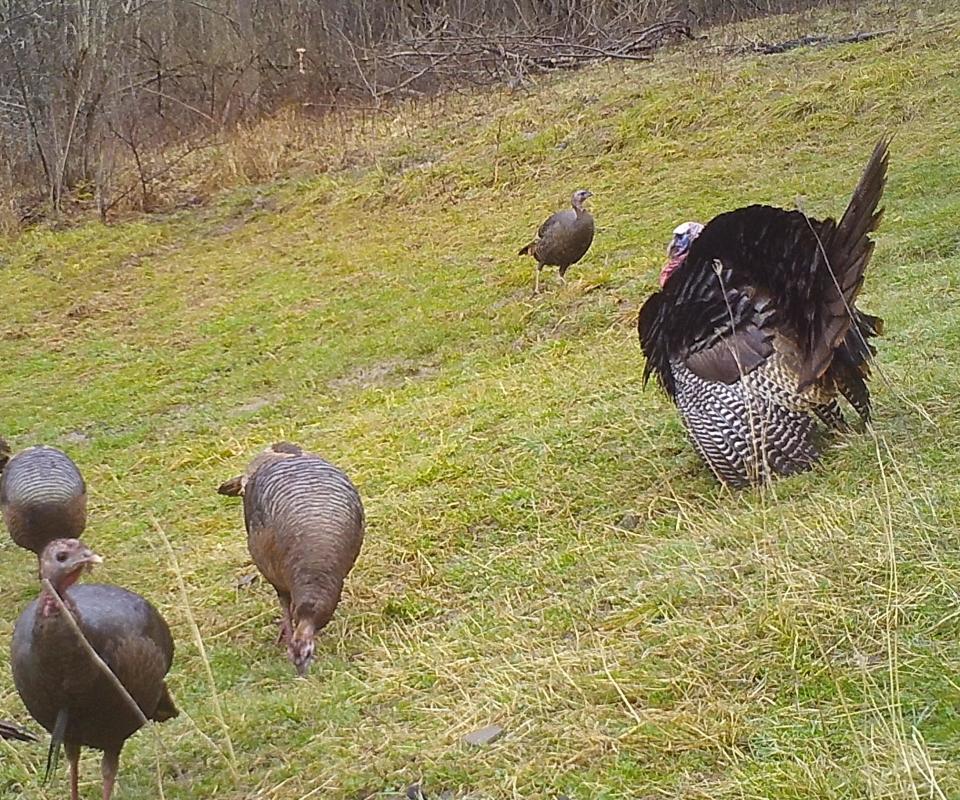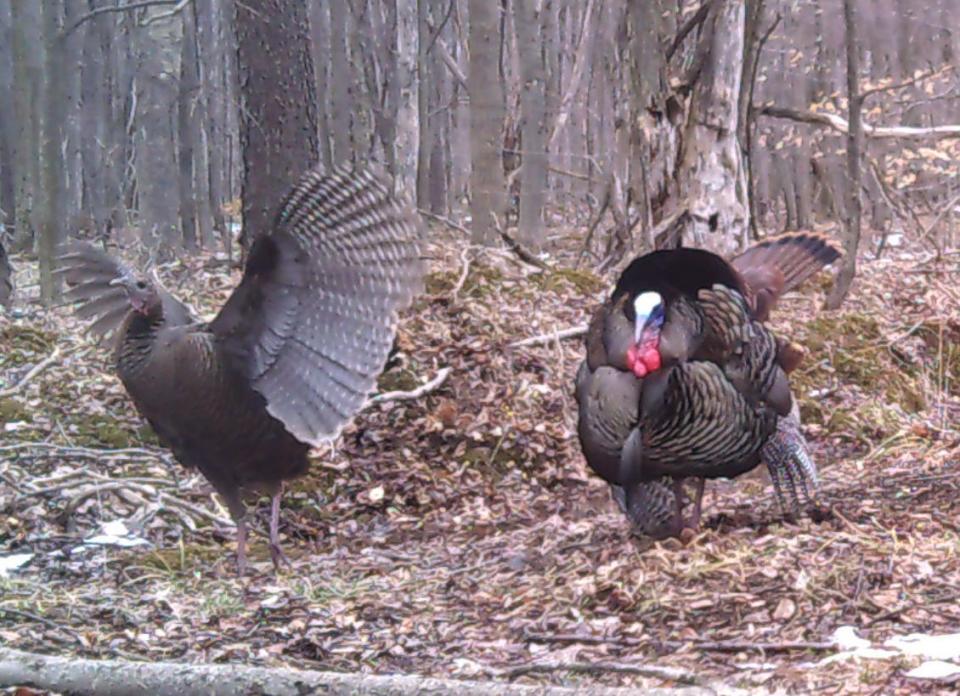The mysterious language of the hen turkey seems to evolve over time: Outdoors column
For this old turkey hunter, it has always been difficult to figure out the female of any species.
But hen turkeys seem especially problematic.
Even as recently as a couple years ago, my belief was that I possessed a good, workingman's understanding of their moods, whims, and behavior.
And when the little wooden box, slate, and plastic devices in my turkey vest replicated their calls, those sounds had meaning.
The ascendant thought always was: if we can sound like a hen turkey, then Mr. Tom will not only answer with a gobble, but come waltzing in throwing all caution to the winds, abandoning his suspicious and wary ways, having only one thought in his walnut-sized brain … love.
But now it seems all for naught. My two-score plus years of obsessive turkey calling has netted me more and more puzzlement and a dawning admission that I know virtually nothing of the turkey's world.

I run my box calls, my diaphragms, and my friction calls and get answers, but evidently, not the answers I am seeking.
Back in the day, 20, 30 or 40 years ago, if we got a hen going, then chances were excellent that Mr. Tom was sure to at least chime in his two cents worth, meaning at least throw out a couple answers, if not begin serious gobbling.
But not this day and age ... maybe it's global warming, maybe solar flares, bad chemistry in the air, or maybe the late spring, an early spring, too many hunters, not enough turkeys, a bad hatch two years ago, whatever …
It seems like our turkeys have changed.
Or at least that's the interpretation because their behavior is definitely skewed when compared to the past.
Take last season as a perfect example.
I had noticed a lot of turkey scratchings on top of a timbered ridge. Dynamite setup spot, right?
So the next morning a decoy and my gun were there at dawn. After a slow start, patience pays off and two lone hens passed through not an hour apart, and both were vocal, replete with putts and clucks, a few lonesome, raspy yelps and even some dominant cutting (quick staccato yelps.)
Those gals were probably each headed to their hidden nests to make their daily deposit of one egg, before the start of setting, or actually incubating the clutch.
But do you think that with all their yakking, that it would draw out even a reticent courtesy gobble from a long-beard?
Nope, not even a cluck.

Years gone by, that was the exact scenario we hoped for, talking hens ... nothing like the real thing for real decoys.
To heck with those plastic inanimate decoy things we tote around when we have the real thing squawking and yelping right in front.
Last season, I thought I had it made. A gobbler was sounding off on the edge of a field just after fly-down and he sounded close!
My decoy was set and the calling sequence began, first with my wooden box call, then some good clucks on my friction call, and some junk from the mouth call. He's gobbling ... answering … and coming in.
The next sequence happens quickly, in 10 seconds.
A hen call sounds off 75 yards to my left, in the hardwoods.
I immediately know … Oh NO! It’s another hunter moving in, drawn in after hearing all the gobbling.
"Darn!"
Then, looking like the Road Runner in the old cartoon, two young toms, long-beards, but probably two-year olds, the gobblers that I had been calling to, streaked past my decoy, headed for parts unknown.
Another hunter had crowded in and spooked them inadvertently, and in all likelihood, saved one from staking its claim to a corner I had reserved in my chest freezer.
It happens.
More: Do wolves roam New York state? New legislation seeks answers, data from hunters
Turkey hunting sometimes makes us feel as if we are on a fool's mission.
Even if we do make the right call and talk the talk, so many other things can screw up the hunt, other hunters, weather, and all those things that fall into the great turkey-hunting category of bad luck.
But I have faith. Some day science will undoubtedly figure out exactly what those hen turkeys are saying … but I hope they do it soon and I’m not holding my breath.
-- Oak Duke writes a weekly column.
This article originally appeared on The Evening Tribune: Outdoors column: The mysterious language of the hen turkey

